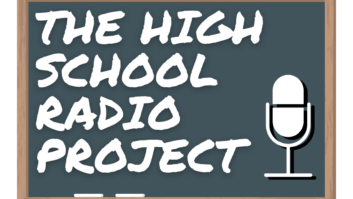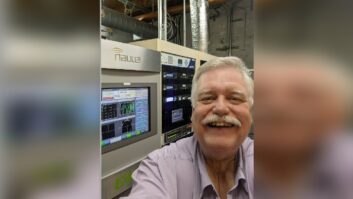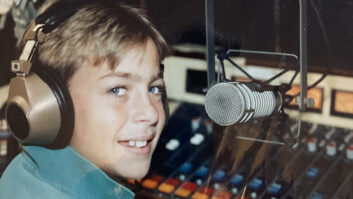
Credit: iStockphoto/pagadesign The focus of a patent infringement suit targeting 14 radio ownership groups and the HD Radio technology they use is shifting to the technology’s developer.
The ongoing case took a twist in July when iBiquity Digital Corp. filed suit against Wyncomm and affiliated company Delaware Radio Technologies LLC, claiming that their patents are invalid.
At the same time, radio broadcasters are asking a judge to consolidate the cases against them by Wyncomm and DRT and to delay a trial in order to give iBiquity a chance to settle its patentability question. Some legal observers believe this tactic may succeed.
Broadcasters say iBiquity is the “developer and sole-supplier of the allegedly infringing technology and therefore the party best situated to defend against those allegations,” according to the latest filings; and court records indicate iBiquity has agreed to take the lead in defending its HD Radio system.
The two patent-holding companies in August fought back, asking the court to deny the request by broadcasters to consolidate the 14 lawsuits. “Defendants provide no cognizable reason why the cases against the defendants should not proceed,” Wyncomm wrote in a court filing.
U.S. District Court Judge Gregory Sleet, who is handling the associated patent infringement suits filed by Wyncomm and DRT, had not ruled on either request as of early September. The broadcasters had until Sept. 15 to reply to the plaintiffs in support of the motion to consolidate and stay their cases.

Scott Daniels, intellectual property attorney for Westerman, Hattori, Daniels & AdrianTHE STORY ’TIL NOW
Wyncomm and DRT sued the radio groups in November 2013, claiming that the data and voice transmission technology used for their HD Radio broadcasts violated three patents it owns; those patents have since expired.
The radio groups have repeatedly denied the infringement allegations and argued in court filings that the patents in question were invalid or unenforceable.
The two companies want a jury trial but have not identified specific damages they seek. The patentees want licensing fees and agreements from broadcasters, according to observers familiar with recent developments. Observers said it is impossible to gauge the potential cost to broadcasters should they lose, though the number of defendants suggests it could be substantial.
The broadcasters named as defendants in the federal lawsuit are Beasley Broadcast Group, CBS Radio, Clear Channel parent CC Media Holdings, Cox Media Group, Cumulus Media, Entercom, Entravision, Greater Media, Hubbard Radio, Radio Disney, Radio One, Saga, Townsquare Media and Univision.
The two companies contend that these broadcasters are “direct infringers of the patents.”
HD Radio technology allows radio broadcasters to broadcast digital audio and data in addition to traditional analog radio signals. There are approximately 2,400 stations using iBiquity’s HD Radio technology, according to court documents filed by broadcasters.
Wyncomm and DRT allege the broadcasters are infringing on patents through “transmission of radio broadcasts using HD Radio transmission techniques described in the IBOC Digital Radio Standard.”
Wyncomm and DRT say one of the three patents at issue, the ’866 patent — “Side-Channel Communications in Simultaneous Voice and Data Transmission” — specifically describes radio transmission techniques used in the IBOC standard adopted by the National Radio Systems Committee in 2005. The suit appears to be trying to tie the NRSC standard to HD Radio specifically, as we’ve reported, though NRSC-5 describes IBOC as a generic term that could apply to any such system from any proponent, an NRSC source earlier told Radio World.

Gregg Skall, communications attorney with Womble Carlyle Sandridge & Rice IBiquity does not comment on active cases, according to spokesman and Senior Vice President Joe D’Angelo. Broadcasters contacted by Radio World previously have declined comment, citing the ongoing litigation; and attempts by Radio World to reach counsel representing Wyncomm and DRT have been unsuccessful.
Little is known about Wyncomm and DRT, observers said. The companies are based in Delaware and are considered patent holding companies, meaning they neither manufacture a product nor provide a service. Separately, Wyncomm and DRT filed a federal suit late last year in U.S. District Court in Delaware alleging that Ford, Chrysler, General Motors, Toyota, BMW and 13 other car companies are infringing. That suit is ongoing.
Attempts to get the broadcast cases to trial have been stalled due to several requests from the radio groups to delay. Some observers detected signs that settlement talks were underway, as we reported in March. Those experts said it’s not clear what kind of impact the latest developments could have on any possible settlement talks; and court documents reviewed by Radio World don’t give any indication whether settlement talks are moving forward.
CASE CONSOLIDATION
Gregg Skall, a communications attorney with Womble Carlyle Sandridge & Rice LLP, said motions such as the one to consolidate cases typically are granted.

Bill Ragland, patent attorney with Womble Carlyle Sandridge & Rice A victory by iBiquity — which, according to the broadcasters’ court filings, has indemnified the radio groups against any losses incurred as a result being sued over use of HD Radio technology — would effectively end the broadcasters’ suit since “you cannot infringe an invalid patent,” said Scott Daniels, an intellectual property attorney with Westerman, Hattori, Daniels & Adrian LLP. “That is what the broadcasters are hoping for with this request.”
Daniels believes Judge Sleet is quite likely to consolidate the radio group cases; however, staying those lawsuits to allow the iBiquity case to proceed is more problematic.
“A stay would delay the cases. Delay is bad since judges are often rated on how quickly they move cases to final resolution,” Daniels said. “But given the inclination of judges to simplify matters, including judges in Delaware, my bet is that Judge Stark will stay the customers’ case.”
Bill Ragland, a patent attorney with Womble Carlyle Sandridge & Rice who has followed the Wyncomm case, said the judge’s decision on the stay will focus on whether it “will promote efficiency and judicial economy; i.e., is the stay likely to save the parties and the court time and effort?”
“Another issue will be whether the broadcasters will agree to be bound by the results of the iBiquity case,” Ragland said.
In its suit, iBiquity “seeks a declaration that the standardized HD Radio technology for digital AM and FM broadcasting used by the broadcasters does not infringe the patents-in-suit,” according to court documents.











